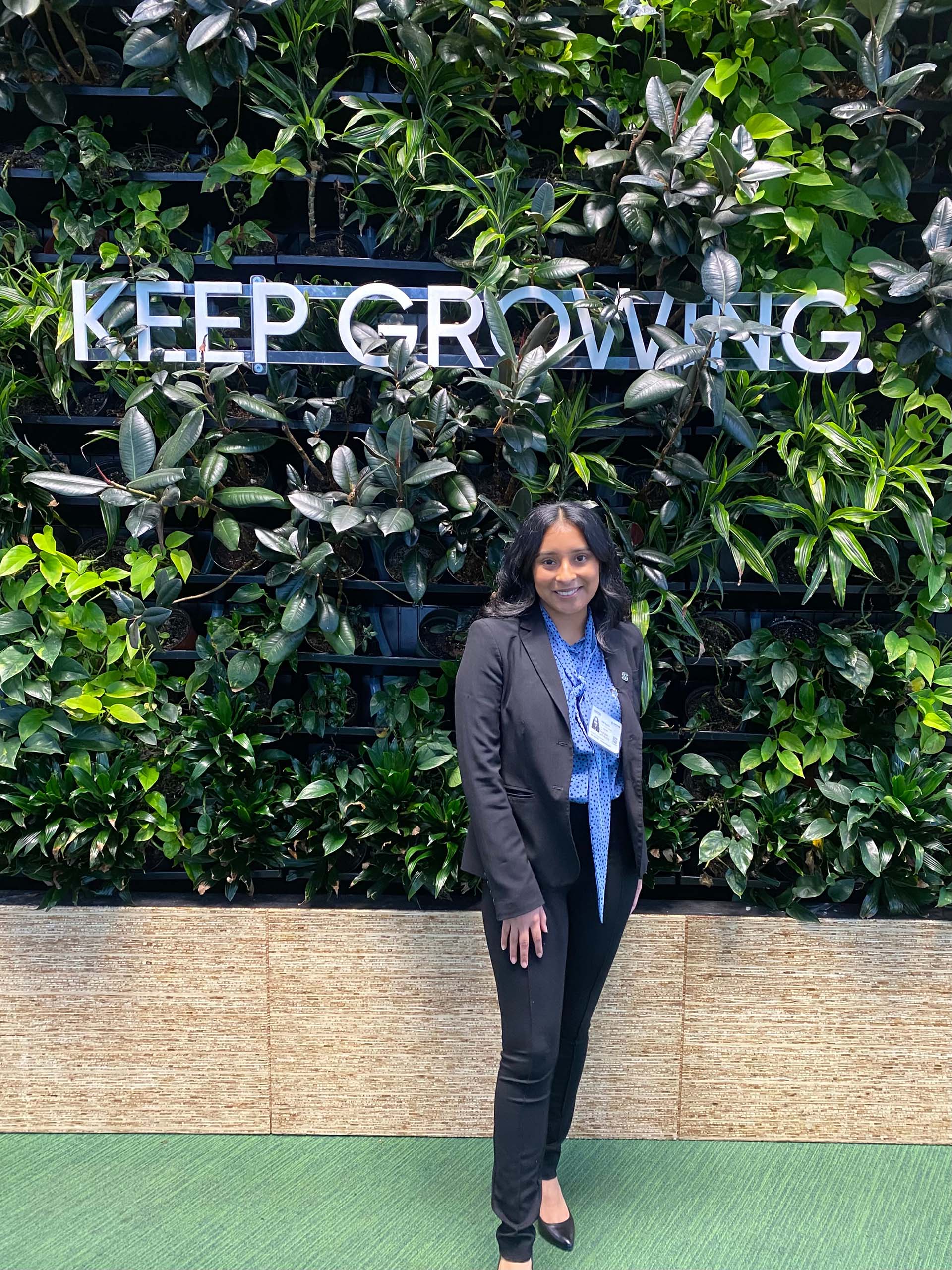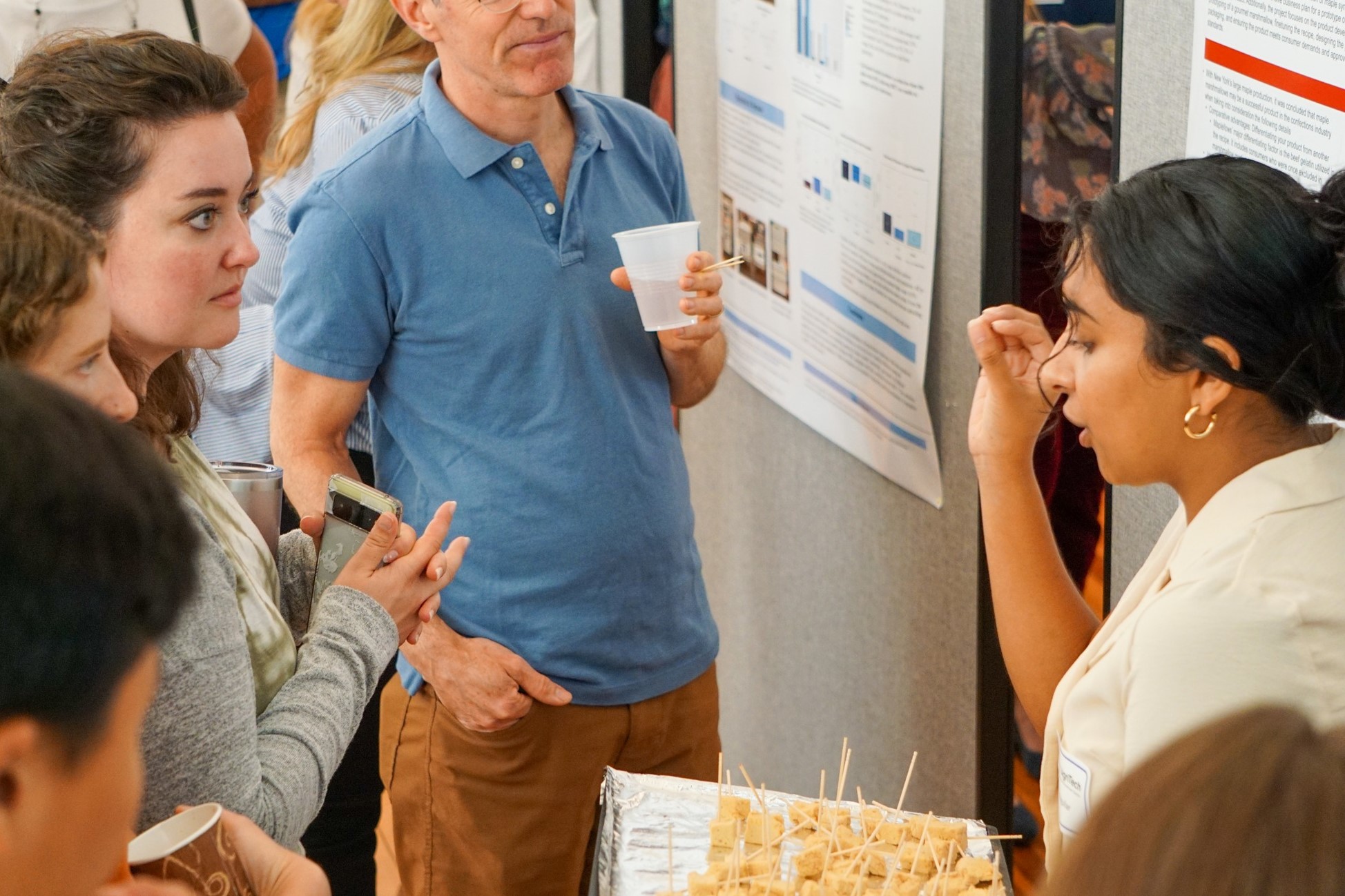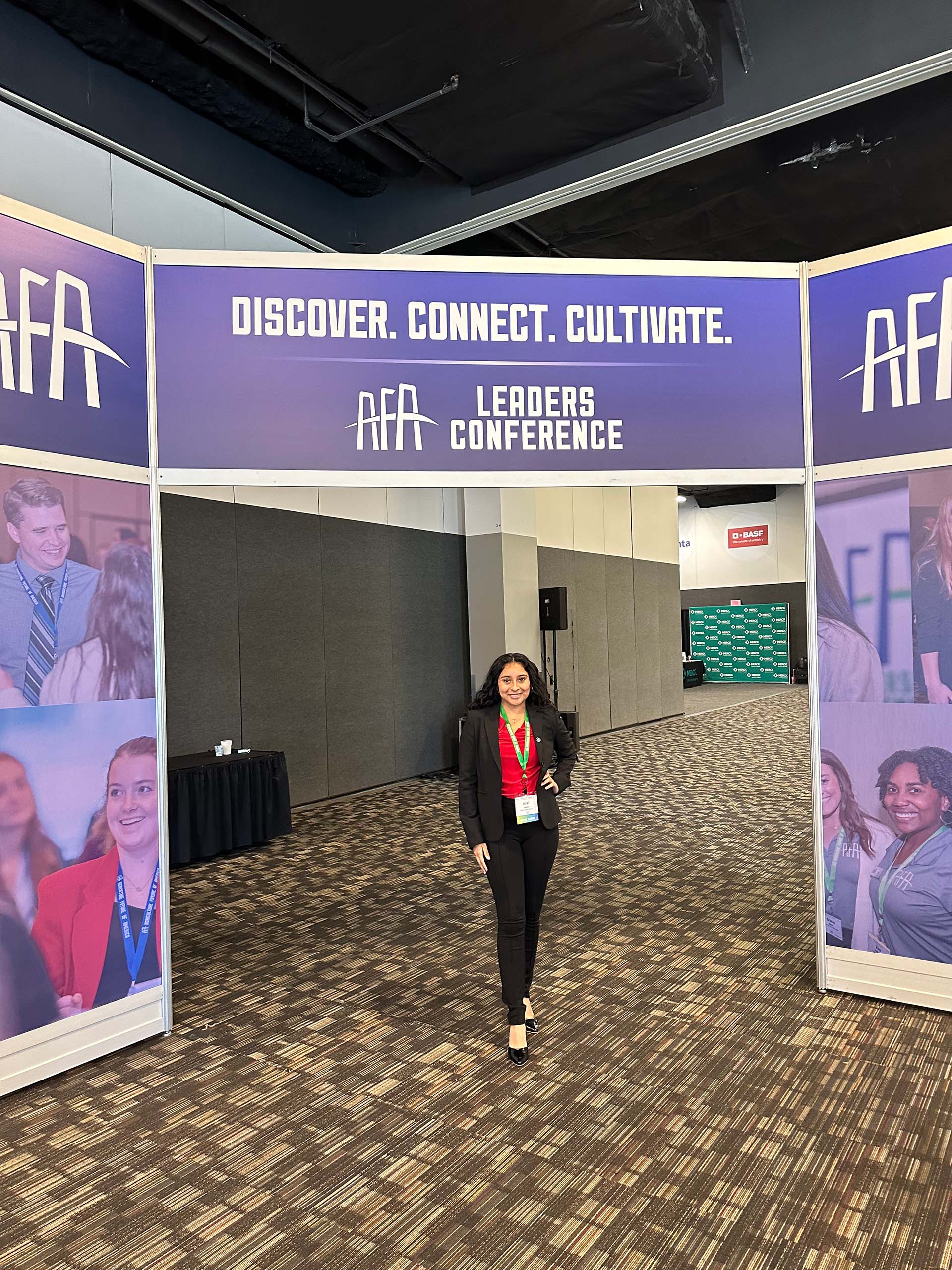Anel Aguilar, a fifth-year agribusiness management major and a first-generation migrant farmworker student from Los Ebanos, Texas, will graduate this spring. Aguilar, the fifth oldest of seven siblings, three of whom are Deferred Action for Childhood Arrivals, or DACA, recipients, was determined to show resilience during her journey at Michigan State University as she encountered and overcame many hardships and challenges.

Taking a leap of faith, Aguilar was encouraged to apply to MSU by her migrant high school counselor, her friends and the MSU College Assistance Migrant Program, or CAMP. She was accepted, which immediately shifted her initial plans of staying local to attending college out of state.
As a woman of color, Aguilar experienced many challenges as an undergrad, especially in her field, which is commonly dominated by white men. She encountered microaggressions that often made her feel out of place and that she did not belong. However, Aguilar did not allow this to stop her from pursuing her passion for learning about agribusiness management and agriculture in general.
One of Aguilar’s toughest experiences at MSU was believing that she had found a sisterhood that would provide her with a community of women who shared the same interests. However, she slowly witnessed racial biases in the community and, despite many efforts and continuous on-and-off conversations for change, the situation didn’t improve.
“I really wanted that space to change and to be part of what they had. It just wasn’t fair,” said Aguilar.
She left with sadness and relief at the same time. To focus on caring for her mental health, she found supportive communities on campus and relied on her close friends.

Another challenging moment in Aguilar’s journey was during the Feb. 13, 2023, campus tragedy. Being stuck at a place where she didn’t feel welcome anymore made her feel very lonely — and being a person of color made her feel like her safety was threatened in so many ways. The only person who made her strong that day was her mom, who stayed on the phone to talk. Afterward, she leaned on the support of her friends, MSU Counseling and Psychiatric Services, or CAPS, CAMP and the Latinx community at MSU.
Aguilar has attended CAPS for two years, and she shared that it has been one of the best resources for her on campus. In addition, Migrant Student Services and the CAMP office have always made her feel at home. CAMP has supported Aguilar not only financially but also emotionally.
“It’s always good to walk into the office and just hug Aleida, Patty, Elias and Luis. They all just feel like family,” she shared.
Despite the obstacles in her path, Aguilar thrived at MSU. She developed the confidence to take on new leadership roles, became president of International Engagement Volunteers, an organization in supportive collaboration with the International Engagement in Mexico study abroad program, and worked as a biological science technician at the U.S. Department of Agriculture. She found inspiring mentors, including the CAMP staff and Dave Weatherspoon, MSU’s associate provost of Enrollment and Academic Strategic Planning and a professor with the Department of Agriculture, Food and Resources Economics. She admires and appreciates all the guidance, words and the network of support she received from them during her time at MSU.

As Aguilar prepares to graduate, she’s been offered a full-time position at Corteva Agriscience as a research marketing analyst in Johnston, Iowa. During her time there, she hopes to increase diversity within the company and give back by providing resources and mentorship to those with similar backgrounds.
“In my family, I’m the first one out of my siblings to graduate from college. I have always been the one who thinks a little differently,” said Aguilar. “So, if you ask my parents, they would probably say they saw it coming because my mom has always said, ‘Anel le gusta la escuela’ or ‘Anel likes school.’ But it’s not that I liked school; it’s more that I had a drive to be in a more comfortable financial situation.
“I saw my parents and siblings struggle, and I just wanted to make a difference for them. As I graduate, I think about where I want to work, how to help my parents and family and what I can do for them.”
Looking back at her journey, Aguilar is grateful for her experiences because they shaped her into the person she is today. As she transitions into this new chapter, Aguilar hopes to inspire others like her and be a role model to other students to overcome their own obstacles and follow their passions.